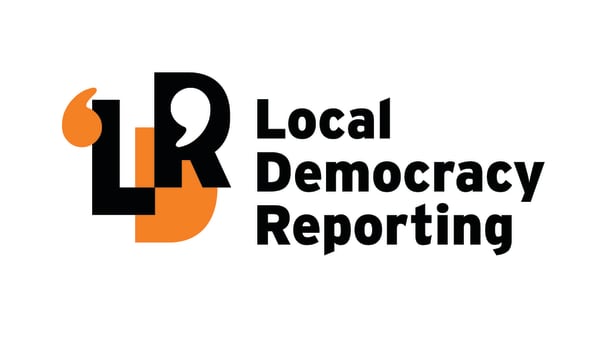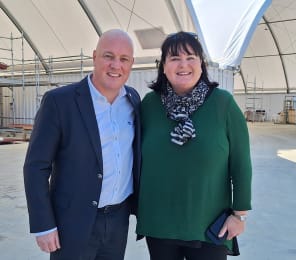Matanuku Mahuika has announced the end of his five-year tenure as chairman of Eastland Group at the annual meeting of Trust Tairāwhiti.

This continues the significant restructuring of Trust Tairāwhiti and its 100%-owned Eastland Group, which underwent a complete transformation under Mahuika’s leadership.
Trust Tairāwhiti was set up in 1993 and mandated to do two main things; preserve the capital of the trust, and support business and community initiatives that are likely to encourage economic growth within the region.
It has grown from $20 million of equity to $556m.
Mahuika said he wanted to acknowledge the trust and the work it was doing to support the Eastland Group restructure.
This started with the sale of electricity distribution company Eastland Network – the original asset of the trust – in 2022 for $260m to fund investment in energy transformation and community development.
Under Mahuika’s governance, Eastland Generation, which invests in renewable energy, also partnered with Japanese company Obayashi, which purchased a 50% stake for $251.5 million, settled in April this year.
In addition to this, Eastland Port and Eastland Generation have been set up as separate companies with their own management and boards.
Mahuika remains a director at Eastland Group to support its transition to what is being described as an investment holding company. Debbie Birch is the new chair.
After the formalities of the annual meeting on Thursday evening, the Trust Tairāwhiti board opened the floor for questions and answers.
Rau Tipu Rau Ora director Amohaere Houkamau asked whether the trust had plans to offset the price of power and people going through energy poverty.
“The price of power has risen 600% since 2021, and the families in this area are feeling that,” she said.
Mahuika said Eastland Generation was a generator of energy and not a retailer, so it could not provide rebates.
“The way electricity is priced, is it is all based on supply and demand. We have a situation at the moment where there is a demand on the network and that’s driving up prices.
“The underlying question that we need to answer as a society is if we are happy with our electricity prices set in that manner,” he said.
Houkamau noted that Gisborne District Council had just appointed two Pākehā trustees after two Māori trustees departed Trust Tairāwhiti. She asked Mayor Rehette Stoltz (also a trustee) if the council had considered equitable representation on the board.
Stoltz said: “At Gisborne District Council we have a robust process where you would be well aware that in the past year two of our Māori trustees had departed. Some were in-cycle. Some were out-cycle, so that affected how we looked around the table.
“But as always we are striving to bring the best possible people to represent our community on board,” she said.
Houkamau also asked why only 26% of distributions were given to Māori organisations when Māori were 56% of the community.
“One-third of that went to one organisation,” she said.
Trust chief executive Doug Jones said it was a good point and the historical distributions of the trust to the Māori community were low.
“It is a work-on for us,” he said.
The trust received many comments of gratitude from residents for its ongoing financial support, which included a record $12.3m distributed to 118 community groups over the past year.
As the region’s economic development agency, the trust also supported 191 businesses over the past year.
The trust was set up with the intention that its capital would revert to Gisborne District Council at the termination of the trust on May 7, 2073.
Resident Colin Sowerby said: “Waiting until 2073 is a bit late for me I’m afraid . . . can you close it early?”
Jones responded: “The 2073 sunset clause was put in during the 1990s and everyone agreed . . . . Changing legislation is a pretty significant thing.”
Resident Simin Williams asked if the trust could use the significant capital it had built up to benefit ratepayers by paying off the $250 million debt Gisborne District Council was stacking up.
“This would be equitable in the sense that everybody benefits,” Williams said.
Trust Tairāwhiti chair David Battin said financially transferring the money would not be possible as the trust’s funds were not liquid – “we couldn’t just transfer it over”.
He also said the constitution restricted this because the trustees were mandated to preserve the capital.
“It would be highly unlikely.”
Jones added that it was not their job to perform the role of local or central government, but instead, they were there to help build and diversify the economy.
Wiliams also wanted to clarify that any distribution would not go towards more developments on Grey St, which she said was unsafe for the buses as they could not turn around. She wondered whether the trust, as operator of the i-Site (on Grey St), had engaged in any conversations with the council.
Jones said Trust Tairāwhiti had been consulted and was working with the council and Rongawhakaata Iwi Trust on the buses to potentially utilise the railway station to allow the buses to safely turn around.










0 comment
JOIN THE CONVERSATION
Read and post comments with a
Newsroom Pro subscription.
Subscribe now to start a free
28-day trial.